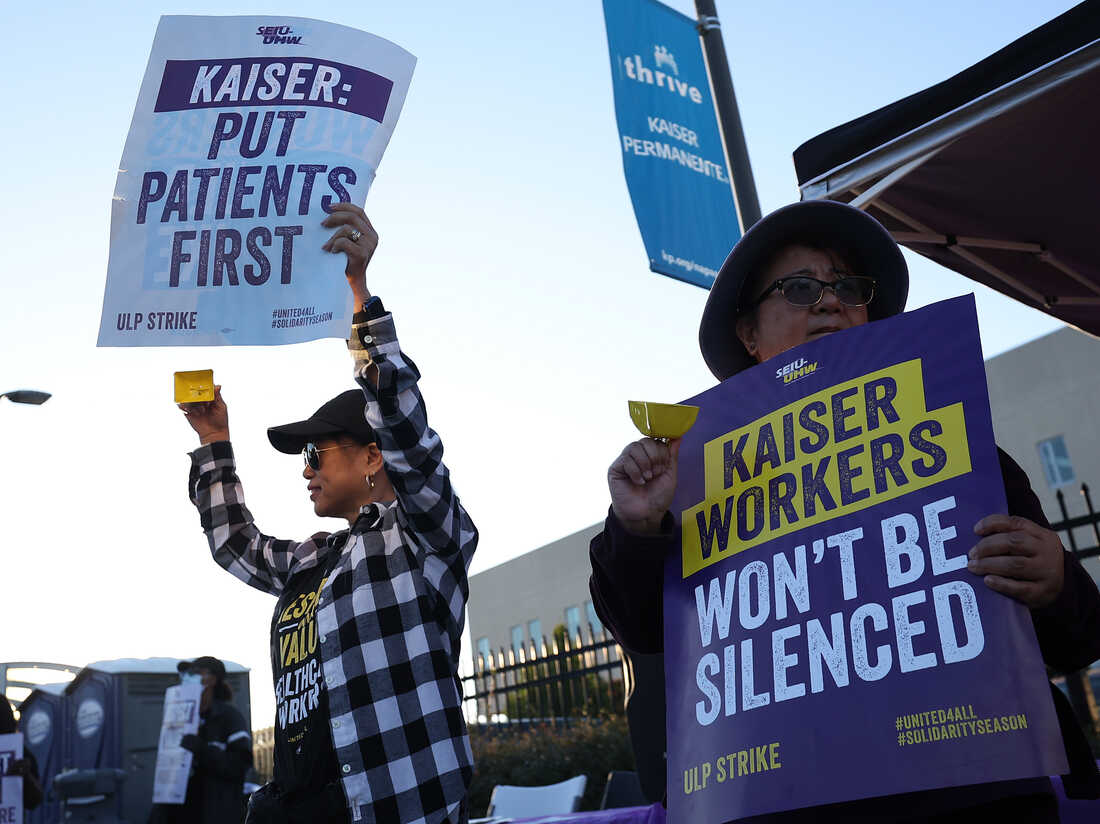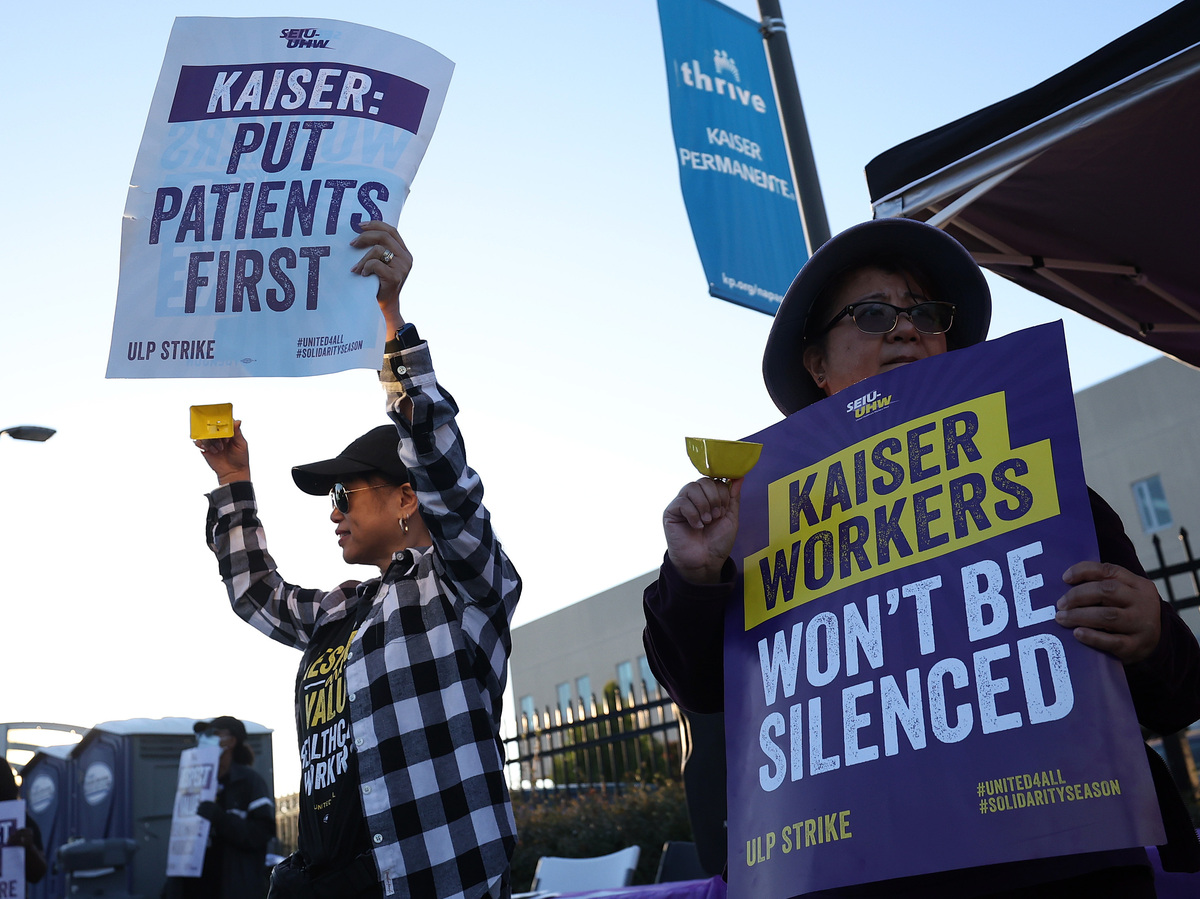[ad_1]

Hanging Kaiser Permanente workers on the picket line in front of a hospital in Vallejo, Calif., on Oct. 6. A deal to avert one more strike arrived jointly Friday.
Justin Sullivan/Getty Photos
conceal caption
toggle caption
Justin Sullivan/Getty Illustrations or photos

Placing Kaiser Permanente personnel on the picket line in entrance of a healthcare facility in Vallejo, Calif., on Oct. 6. A deal to avert a different strike came alongside one another Friday.
Justin Sullivan/Getty Visuals
Kaiser Permanente and a coalition of unions arrived at a tentative deal Friday morning, ending the major healthcare labor dispute in U.S. history.
The new agreement aims to handle staffing shortages with raises that will amount to 21% in wage increases in excess of the subsequent four a long time, to assistance retain latest employees.
The deal arrives just after tens of countless numbers of nurses, ER professionals, and pharmacists participated in a a few-working day strike Oct. 4-6.
Putting employees argued an less than-staffing disaster was hurting patients.
Both equally sides credited the involvement of acting U.S. Labor Secretary Julie Su, who was there in man or woman when the final version was hammered out at 3 A.M. in San Francisco.
“This settlement demonstrates what is possible when staff have a voice and a seat at the desk,” Su reported throughout a press conference Friday.
“Collective bargaining is effective. It could not often glance rather. But unions have, through our nation’s history, developed the middle class.”
Steve Shields, the guide for labor relations at Kaiser, explained the negotiations were long, but all events now come to feel like they have appear to a strong settlement.
“It was a bumpy experience,” he said. “We are committed to the mission and dedicated to caring for persons in our communities. It is a complicated atmosphere in the U.S. in general for healthcare. We really don’t have plenty of health care workers.”
Kaiser staff who participated in the strike will vote to ratify the new deal starting off Oct. 18.
“This offer is everyday living-shifting for frontline overall health treatment staff like me, and daily life-conserving for our clients,” mentioned Yvonne Esquivel, a pediatric medical assistant at Kaiser Permanente in Gilroy, Calif.
“Thousands of Kaiser well being treatment staff fought tough for this new arrangement, and now we will lastly have the resources we will need to do the work we adore, and continue to keep our clients secure,” Esquivel explained.
The new contract establishes a least wage wellbeing treatment workers at Kaiser Permanente, which is the two an insurance company and a process of hospitals and clinics. In California, that minimum wage will be $25 per hour, and $23 per hour for personnel in other states.
The wellness care big has employees and services in Washington, Oregon, Colorado, Maryland and Washington D.C., among the other states.
The agreement covers represents massive wins for the coalition of unions representing 85,000 Kaiser Permanente employees. Other particulars of the agreement involve new limitations on hiring subcontractors and employing outdoors firms for momentary staffing.
The offer also calls for Kaiser to commit in occupation teaching systems, and use referral bonuses, mass occupation fairs and other workforce growth endeavours to guarantee an enough supply of new workforce for the potential.
Kaiser suggests it will also function to fill some of its vacant positions, just one of the primary components of the coalition’s demands. Currently, 11% of positions are unfilled.
“A important provision was something we referred to as an accelerated hiring procedure, claimed Dave Reagan, the president of SEIU United Health care Staff. ” We are removing all boundaries to staying in a position to get people into positions and into individual going through roles to provide care.”
Kaiser will concentration on challenging-to-fill positions very first.
“We believe we have the capability to build 25,000 new overall health treatment staff around the up coming 4 many years,” Reagan mentioned. “We can not do that unless we rebuild the partnership.”
If an agreement hadn’t been arrived at, the union was threatening to maintain one more 3-day strike in November.
[ad_2]
Source hyperlink

